9 Best Herbal Creams For Inflammation
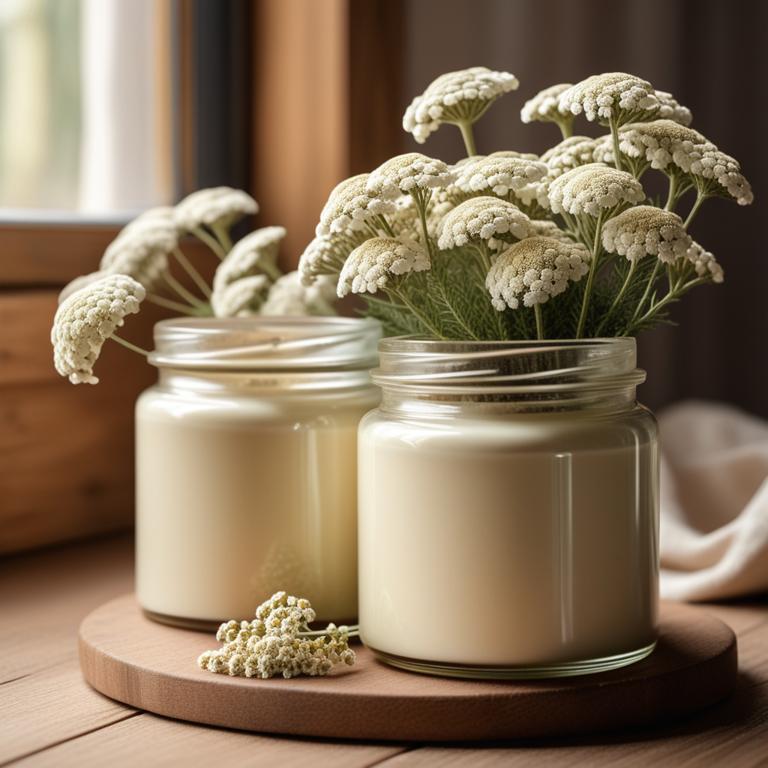
Herbal creams for inflammation are topical ointments infused with various plant extracts, which are used to alleviate and soothe inflamed skin.
These creams offer several benefits, including reducing pain and discomfort, promoting healing, and preventing further irritation.
Examples of herbal creams for inflammation include arnica creams, which contain arnica montana flowers to reduce swelling and pain; aloe vera creams, which have anti-inflammatory properties to calm irritated skin; chamomile creams, which soothe and calm inflamed areas; ginger creams, which reduce pain and inflammation; and tea tree oil creams, which combat bacterial infections that can exacerbate inflammation.
By harnessing the natural anti-inflammatory properties of these herbs, herbal creams provide a safe and effective alternative for treating inflammation.
According to "Zeitschrift fur Hautkrankheiten", creams for inflammation like Kamillosan cream showed similar therapeutic results to 0.25% hydrocortisone and were even superior to other non-steroidal anti-inflammatory agents like 5% bufexamac.
Below there's a list of the 9 best herbal creams for inflammation.
- 1. Arnica montana creams
- 2. Hamamelis virginiana creams
- 3. Melaleuca alternifolia creams
- 4. Eucalyptus globulus creams
- 5. Lavandula angustifolia creams
- 6. Silybum marianum creams
- 7. Calendula officinalis creams
- 8. Echinacea purpurea creams
- 9. Aloe barbadensis creams
Also you may be interested in...
TODAY'S FREE BOUNDLE
Herb Drying Checklist + Herbal Tea Shopping List + Medicinal Herbs Flashcards
Enter you best email address below to receive this bundle (3 product valued $19.95) for FREE + exclusive access to The Aphotecary Letter.
$19.95 -> $0.00
1. Arnica montana creams
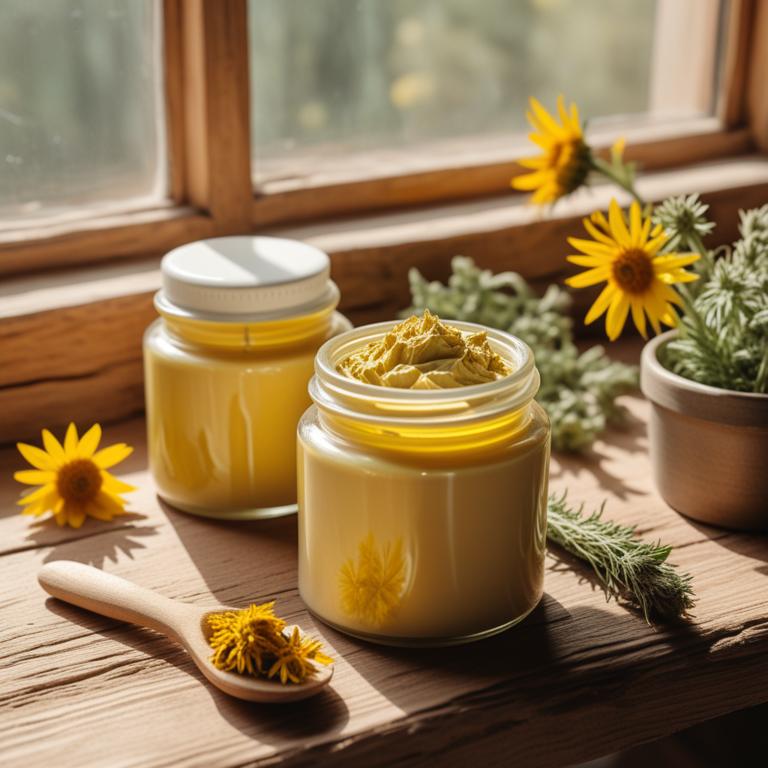
Arnica montana creams have been widely used to treat inflammation and pain associated with various ailments, such as bruises, sprains, and swelling.
The anti-inflammatory and analgesic properties of this herbal preparation are attributed to its ability to reduce inflammation and relieve pain, making it an effective remedy for treating inflammation.
The bioactive constituents of Arnica montana creams, including sesquiterpene lactones, flavonoids, and triterpene acids, contribute to its therapeutic effects by inhibiting the production of pro-inflammatory enzymes and reducing oxidative stress.
By using Arnica montana creams, individuals can benefit from its ability to reduce inflammation and promote healing, thereby alleviating discomfort and improving overall well-being.
Related Study
According to "Recent patents on inflammation & allergy drug discovery", Arnica montana creams for inflammation have been found to be effective in combating inflammatory responses due to the presence of phytoconstituents such as flavonoids and terpenoids that possess anti-inflammatory activity and can synergize the anti-inflammatory pathway enzymes.
2. Hamamelis virginiana creams
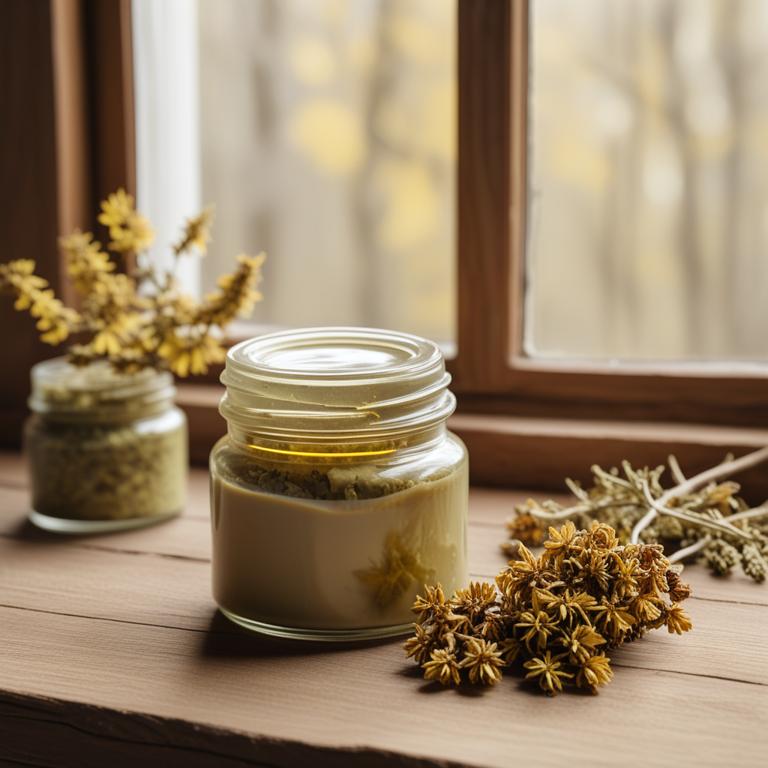
Hamamelis virginiana creams have been traditionally used to treat inflammation-related ailments due to their anti-inflammatory and antioxidant properties, which help to reduce swelling and alleviate pain.
The herbal preparation contains bioactive constituents such as phenolic acids, flavonoids, and terpenoids, which work together to inhibit the production of pro-inflammatory enzymes and cytokines, thereby reducing inflammation.
By applying the cream topically, Hamamelis virginiana creams can help to soothe and calm irritated skin, reducing redness and discomfort, and promoting faster healing.
The benefits of using Hamamelis virginiana creams include natural and gentle relief from inflammation, reduced risk of scarring, and improved skin health.
3. Melaleuca alternifolia creams
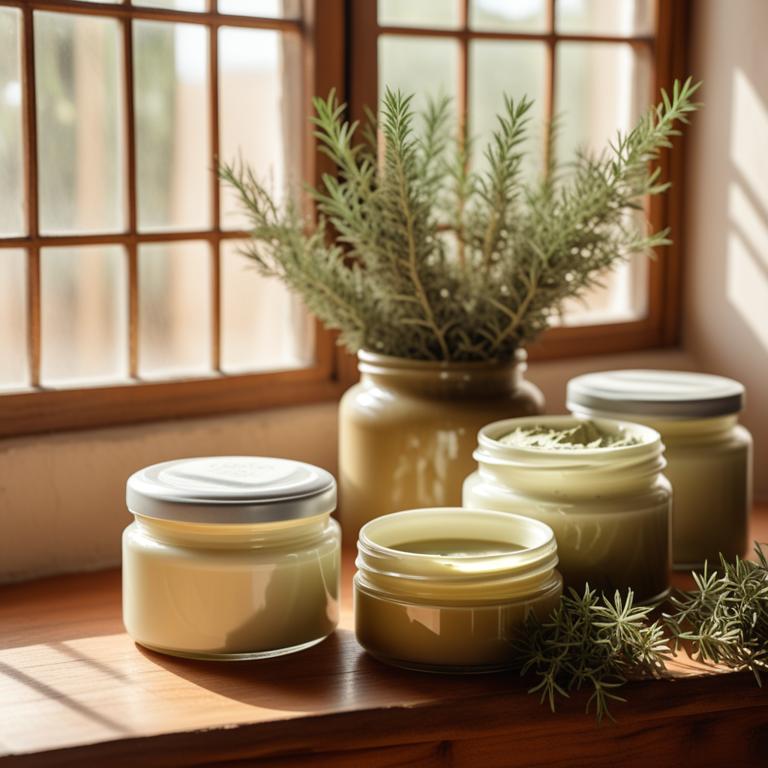
Melaleuca alternifolia creams have been traditionally used to treat inflammation ailments due to their anti-inflammatory and antimicrobial properties.
The active compounds in these creams, such as cymene and pinene, help to reduce inflammation by inhibiting the production of pro-inflammatory enzymes and cytokines, thus providing relief from pain and discomfort.
The bioactive constituents of Melaleuca alternifolia, including terpinen-4-ol, have been shown to possess potent anti-inflammatory and antioxidant activities, which contribute to its therapeutic effects.
By using Melaleuca alternifolia creams, individuals can experience the benefits of reduced inflammation, improved wound healing, and enhanced overall skin health.
Related Study
According to the study, Melaleuca alternifolia creams have beneficial effects on skin, specifically showing antifungal, antiviral, antibacterial and acaricidal activity against skin infections, including those that cause inflammation.
4. Eucalyptus globulus creams
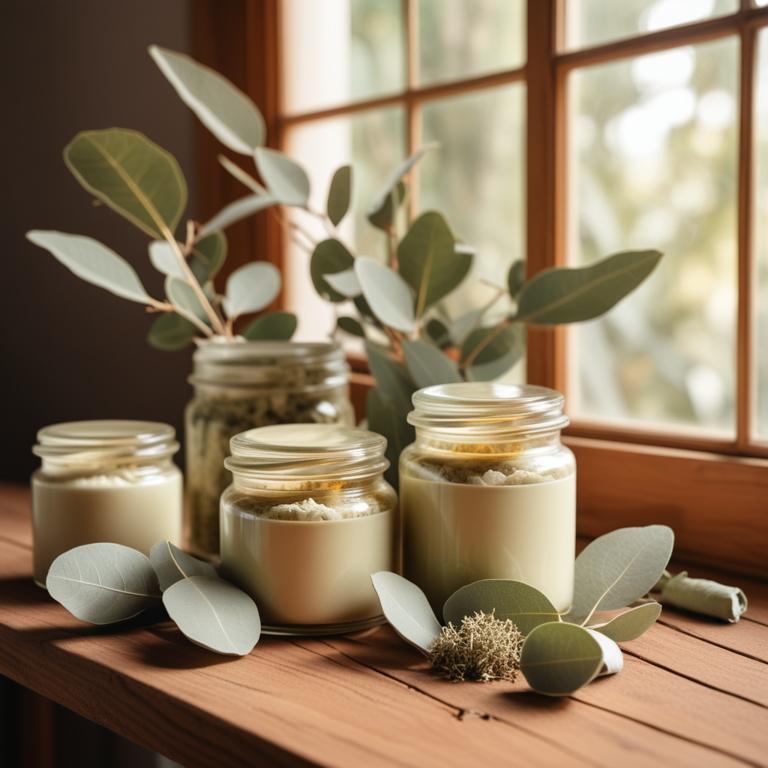
Eucalyptus globulus creams have been traditionally used to treat inflammation ailments, such as arthritis and wounds, due to their anti-inflammatory and antiseptic properties.
These properties help to reduce swelling and pain, promote healing, and prevent infection.
The bioactive constituents, including eucalyptol, limonene, and cineole, present in Eucalyptus globulus creams, have been shown to exhibit potent anti-inflammatory and antioxidant activities, which contribute to their therapeutic effects.
The benefits of using Eucalyptus globulus creams to treat inflammation ailments include reduced pain and swelling, accelerated wound healing, and improved overall health and well-being.
Related Study
According to "Zhongguo Zhong yao za zhi = Zhongguo zhongyao zazhi = China journal of Chinese materia medica", Eucalyptus globulus creams for inflammation have been found to significantly reduce inflammatory cell infiltration and bronchiolitis severity, while also decreasing mucin content in bronchoalveolar lavage fluid and inhibiting MUC5ac expression in the trachea and bronchiole epithelium, indicating their potential anti-inflammatory effects.
5. Lavandula angustifolia creams
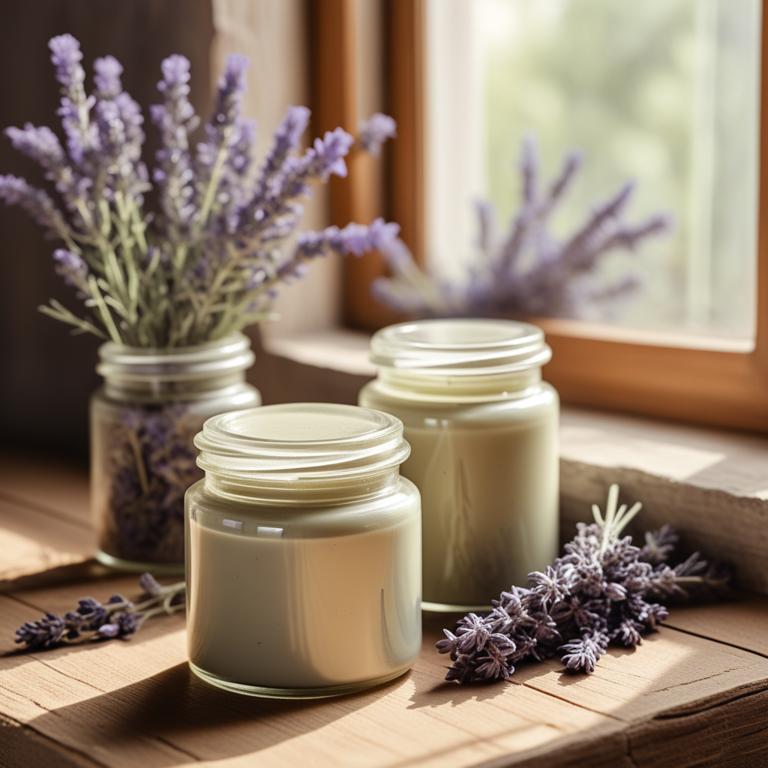
Lavandula angustifolia creams have been traditionally used to treat inflammation-related ailments due to their anti-inflammatory and analgesic properties.
The bioactive constituents, including linalool and linalyl acetate, help to reduce inflammation and alleviate pain by inhibiting the production of pro-inflammatory mediators and promoting the release of anti-inflammatory cytokines.
The creams also exhibit antioxidant properties, which help to neutralize free radicals and reduce oxidative stress, further contributing to the reduction of inflammation.
By reducing inflammation and alleviating pain, Lavandula angustifolia creams offer a natural and effective treatment option for various inflammatory conditions, such as arthritis and skin irritations.
Related Study
According to "Molecules (Basel, Switzerland)", Lavandula angustifolia creams for inflammation may exhibit anti-inflammatory effects due to their antioxidant properties.
6. Silybum marianum creams
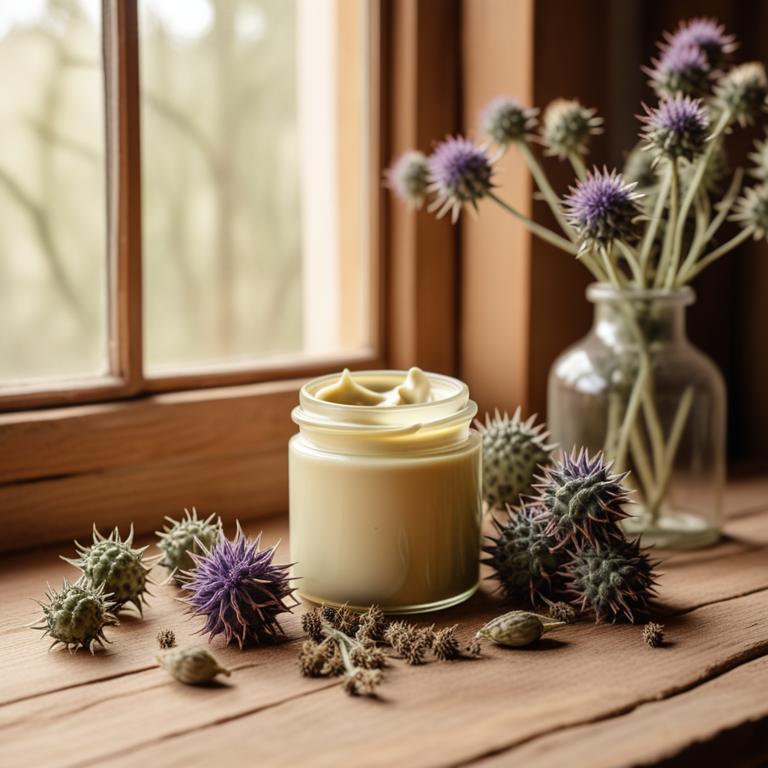
Silybum marianum creams, also known as milk thistle creams, are a topical herbal preparation used to treat inflammation and related ailments.
The anti-inflammatory and antioxidant properties of this herbal preparation help to reduce swelling and alleviate pain, making it an effective treatment for conditions such as arthritis and eczema.
The bioactive constituents, including silymarin, flavonoids, and fatty acids, in Silybum marianum creams help to inhibit pro-inflammatory enzymes and modulate the immune response, thereby reducing inflammation and promoting tissue repair.
The benefits of using Silybum marianum creams to treat inflammation include reduced pain and swelling, improved skin health, and a natural alternative to conventional medications.
Related Study
According to "Frontiers in pharmacology", Silybum marianum creams for inflammation may be effective due to the presence of silybin, a flavonolignan component with anti-inflammatory properties.
7. Calendula officinalis creams
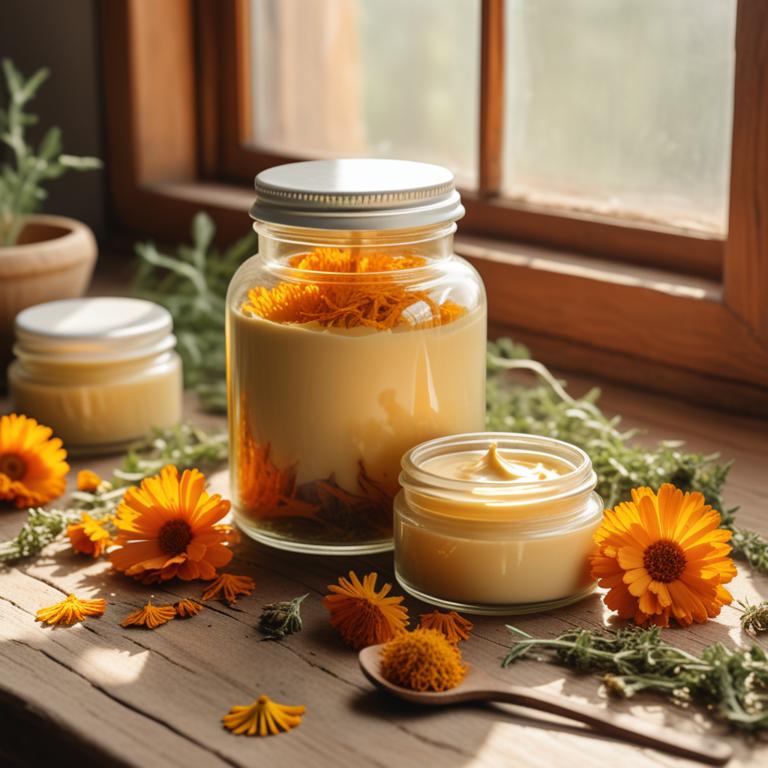
Calendula officinalis creams have been used for centuries to treat inflammation and skin conditions, leveraging their anti-inflammatory, antimicrobial, and antioxidant properties.
The bioactive constituents of Calendula officinalis, including triterpenoids and carotenoids, help to reduce inflammation and promote wound healing by inhibiting the production of pro-inflammatory enzymes.
These creams can be applied topically to soothe and calm irritated skin, reducing redness and swelling, and promoting a faster recovery from injuries and skin irritations.
The benefits of using Calendula officinalis creams to treat inflammation include reduced pain and discomfort, improved skin health, and a shorter recovery time, making them a popular natural remedy for skin conditions and injuries.
Related Study
According to "Planta medica", Calendula officinalis creams for inflammation are most effective when they contain high levels of faradiol monoester due to its anti-inflammatory properties.
8. Echinacea purpurea creams
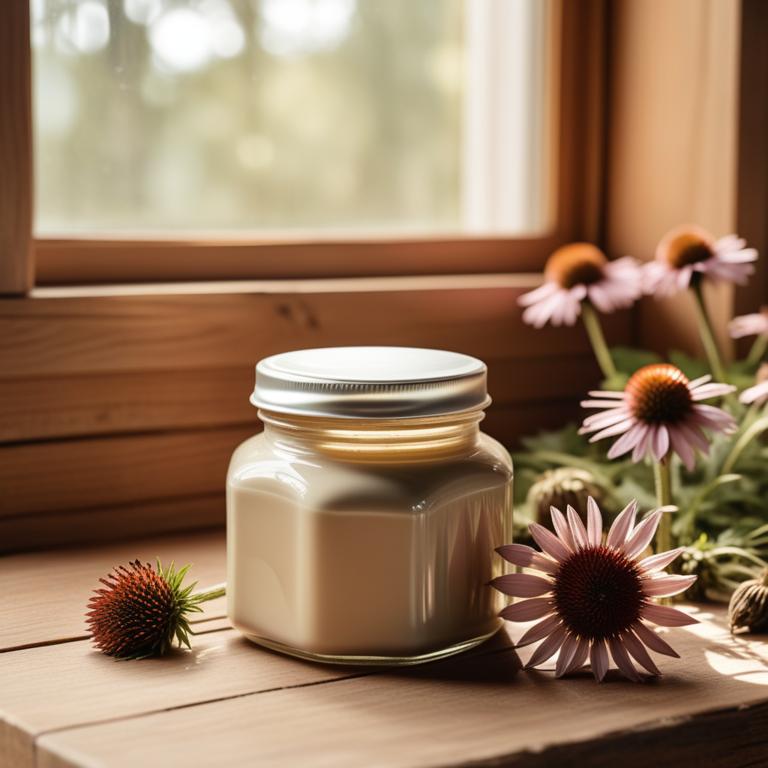
Echinacea purpurea creams have been traditionally used to treat inflammation and offer relief from symptoms associated with conditions such as arthritis and skin irritations.
The anti-inflammatory and immunomodulatory properties of Echinacea purpurea creams help to reduce swelling and alleviate pain, making it an effective treatment for inflammation.
The bioactive constituents of Echinacea purpurea creams, including alkylamides, flavonoids, and phenolic acids, have been found to inhibit pro-inflammatory enzymes and cytokines, contributing to their anti-inflammatory effects.
By reducing inflammation and promoting healing, Echinacea purpurea creams offer a natural and effective way to manage inflammation-related ailments and promote overall well-being.
9. Aloe barbadensis creams
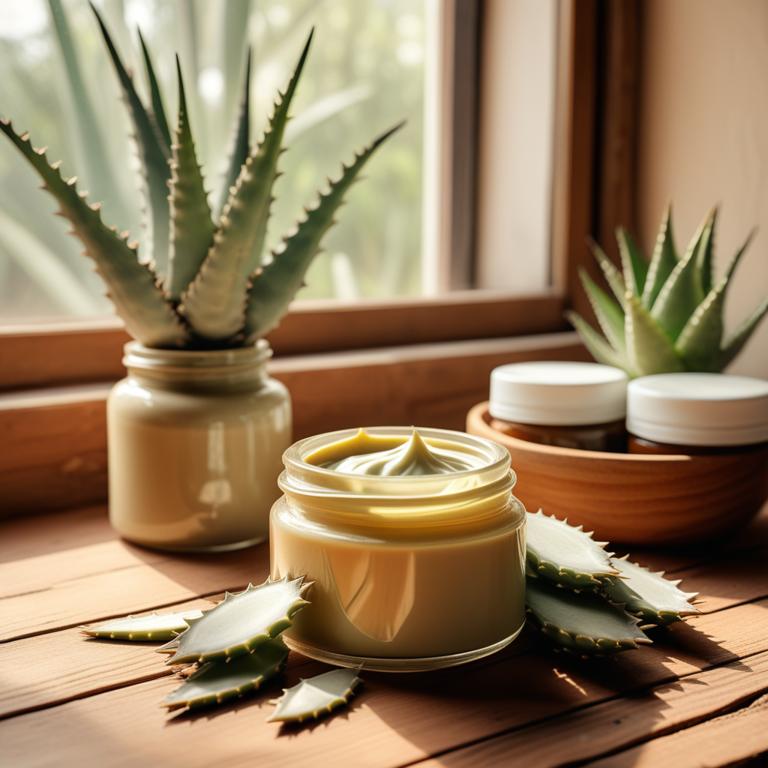
Aloe barbadensis creams have been widely used to treat inflammation-related ailments due to their anti-inflammatory, antimicrobial, and antioxidant properties.
The bioactive constituents present in these creams, such as aloin, aloe-emodin, and acemannan, help to reduce inflammation and promote wound healing.
Aloe barbadensis creams work by inhibiting the production of pro-inflammatory enzymes, thereby reducing inflammation and alleviating symptoms associated with conditions like arthritis and skin irritations.
The benefits of using these creams include reduced pain, swelling, and redness, as well as improved skin elasticity and faster healing rates, making them an effective herbal preparation for treating inflammation-related ailments.
Related Study
According to the study, Aloe barbadensis creams for inflammation may be effective due to the presence of gibberellin or a gibberellin-like substance, which inhibits inflammation in a dose-response manner.